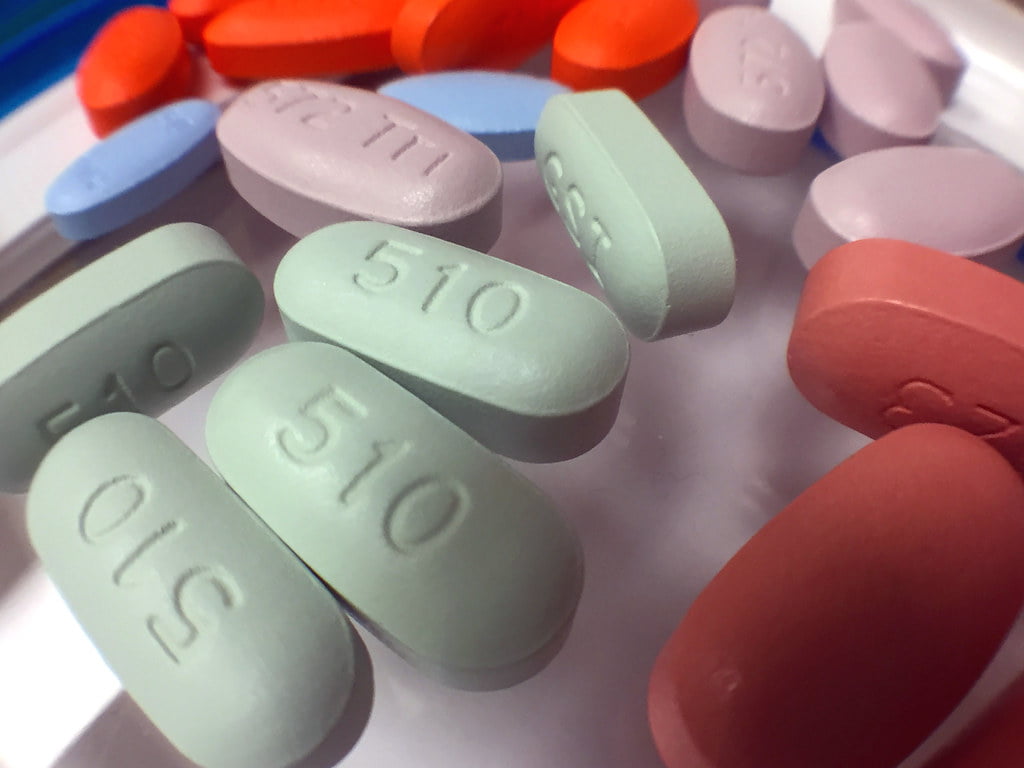 Getty Images
Getty ImagesPaul Daniel “Ace” Frehley, founding guitarist for the American rock band KISS, has died aged 74, his family announced in a statement reported in US media.
Frehley died surrounded by family, who said they were “completely devastated and…

 Getty Images
Getty ImagesPaul Daniel “Ace” Frehley, founding guitarist for the American rock band KISS, has died aged 74, his family announced in a statement reported in US media.
Frehley died surrounded by family, who said they were “completely devastated and…
This request seems a bit unusual, so we need to confirm that you’re human. Please press and hold the button until it turns completely green. Thank you for your cooperation!

MSD’s investigational two-drug HIV combination has been proven safe, efficacious and non-inferior to current standard of care (SoC) in two Phase III trials.
During the MK-8591A-052 study (NCT05630755), patients treated with DOR/ISL, a combination of MSD’s marketed antiretroviral, Pifeltro (doravirine) plus investigational medication islatravir, maintained vital suppression and demonstrated non-inferiority to SoC of bictegravir/emtricitabine/tenofovir alafenamide (BIC/FTC/TAF).
There was also negligible impacts on both weight and body composition at week 48, with a mean weight drop of 0.03kg compared with baseline, while those who continued on BIC/FTC/TAF experienced a 0.28kg weight gain. Throughout the study period, 14.6% of those given DOR/ISL experienced a ≥5% weight gain, while 16.0% experienced this in the SoC group from baseline.
Meanwhile, in both the MK-8591A-051 (NCT05631093) and MK-8591A-052 trials, patients who switched to DOR/ISL from Biktarvy experienced no clinically meaningful changes in fasting lipids. This includes total cholesterol, as well as low- and high-density lipoprotein (HDL, LDL) and triglyceride levels.
Mean blood glucose and fasting insulin level changes were also minimal across treatment groups in both studies.
These findings are notable as chronic antiretroviral use can often cause weight gain or changes to body composition, as well as dyslipidaemia – all of which can contribute to a patient’s risk of developing comorbid cardiovascular conditions.
According to Dr Chloe Orkin, dean for healthcare transformation, Queen Mary University of London, the Phase III findings are “important to consider,” as many patients with HIV face weight-related issues such as obesity.
These results follow MSD’s previous positive Phase III readouts for Pifeltro-islatravir, which prompted the New Jersey pharma to file a new drug application (NDA) for the combination to the US Food and Drug Administration (FDA). The target action date for the application is the 28 April 2026.
If approved, the combination would become the first two-drug regimen without an integrase inhibitor to get the regulatory green light in HIV.
Anaelle Tannen, infectious disease analyst at GlobalData, noted that this could be a “particularly important development for older patients with comorbid conditions,” as a two-drug regimen is associated with lower toxicities relative to the three-drug alternative.
However, Tannen caveated that Biktarvy will likely remain the SoC due to “physician familiarity and the drug’s strong efficacy and safety profile”.
“DOR/ISL is an oral daily drug, so it doesn’t have a benefit in terms of less frequent dosing, and islatravir itself has been associated with lymphocytopenia toxicity in previous trials,” Tannen said. “However, Biktarvy has been connected with weight gain and if DOR/ISL doesn’t have this side-effect, patients may prefer this option.”
However, penetrating Biktarvy’s market share could be a tough nut to crack for MSD, known as Merck in the US, as the drug currently holds the market-leading spot in the first-line HIV setting. Analysts at GlobalData also forecast that Biktarvy will remain in the top spot over the forecast period, with sales exceeding $11.6bn in the US alone by 2033.
GlobalData is the parent company of Clinical Trials Arena.
Meanwhile, Pifeltro-islatravir will reach blockbuster status by 2030, with the combination estimated to pull in $1.7bn by 2033, as per a patient-based forecast from analysts at GlobalData.
However, islatravir could have another shot at glory on the HIV market, as two Phase III trials are currently assessing islatravir plus Gilead’s HIV drug, Sunlenca (lenacapavir). The combination was recently found to maintain viral suppression for two years when administered orally once-weekly in a Phase II trial.
If approved, the Sunlenca-islatravir duo could become the first weekly oral treatment option for patients with HIV, which could boost medication adherence and administration convenience.
By Annabel Kartal Allen
Source : Clinical Trials Arena

Meghan Markle is spilling the beans on her ways of communication with fans.
The Duchess of Sussex, who recently attended the Fortune Most Powerful Women Summit…

When biomedical researchers need to test their latest ideas, they often turn to engineered human tissue that mimics the responses in our own bodies. It’s become an important intermediary step before human clinical trials.
One…

Paying Anthropic customers can now teach their Claude new tricks, which the company calls Skills.
Despite much talk about superintelligence, AI models can be clueless when it comes to interacting with specific applications. Sure, they can parse…

There is no safe amount of alcohol consumption when it comes to your risk for dementia, according to a recent study.
While past research has suggested that moderate alcohol consumption may even be associated with some health benefits, more recent…

Two Russian cosmonauts are back inside the International Space Station after conducting a spacewalk to install a semiconductor materials experiment, as well as retrieve and jettison a no-longer-needed camera from the exterior of the orbiting…

As cancer survivorship rises, many people living with or beyond cancer face lasting physical and emotional challenges – particularly anxiety and depression, which affect about 30% of this population. Emotional distress is often…

New data presented at the 2025 European AIDS Clinical Society (EACS) Congress suggest that a once-weekly oral regimen combining islatravir and lenacapavir could mark a major advance in HIV treatment convenience. Findings from a Phase 2 trial (NCT05052996) showed that people with HIV-1 who switched from daily antiretroviral therapy to this weekly two-drug regimen maintained full viral suppression through 96 weeks, with no cases of virologic failure or drug resistance.
The study enrolled adults who were already virologically suppressed on a standard daily combination of bictegravir, emtricitabine, and tenofovir alafenamide. Participants were randomised to continue daily therapy or to switch to once-weekly islatravir 2 mg plus lenacapavir 300 mg. Of the 52 participants who began the once-weekly regimen, 47 continued into the 48-week extension phase, completing nearly 2 years of follow-up.
At 96 weeks, all participants on the islatravir-lenacapavir combination maintained undetectable viral loads, and mean adherence-assessed by pill count was 99.3%. No emergent resistance to either agent was observed, and safety data remained favourable throughout the study period.
Treatment with the once-weekly regimen was well tolerated. Just under one in five participants (19.2%) experienced mild or moderate drug-related side effects, and no severe adverse events related to treatment were reported. Two participants discontinued the study, though neither due to drug-related effects.
CD4+ T-cell counts showed minimal changes, with a mean decrease of 33 cells/μL (95% CI: −86 to 20), while median weight and BMI remained stable over 2 years. The consistent efficacy, safety, and adherence profile suggest that weekly oral dosing could provide a simpler alternative for people living with HIV who wish to avoid daily tablets or injectable regimens.
The promising Phase 2 results underpin ongoing global Phase 3 trials (ISLEND-1 and ISLEND-2) which aim to confirm the efficacy and safety of once-weekly oral islatravir plus lenacapavir as a complete regimen for HIV-1. If successful, this would represent the first fully oral, once-weekly treatment option for people living with HIV.
Researchers at EACS 2025 emphasised that such simplified dosing could improve quality of life and adherence, supporting long-term viral suppression and reducing treatment fatigue among patients.
By Ada Enesco
Colson AE et al. Oral weekly islatravir plus lenacapavir in virologically suppressed people With HIV-1: 96 week outcomes from a phase 2 study. PS15.5.LB. EACS 2025, 15-18 October, 2025.
Source : European Medical Journal